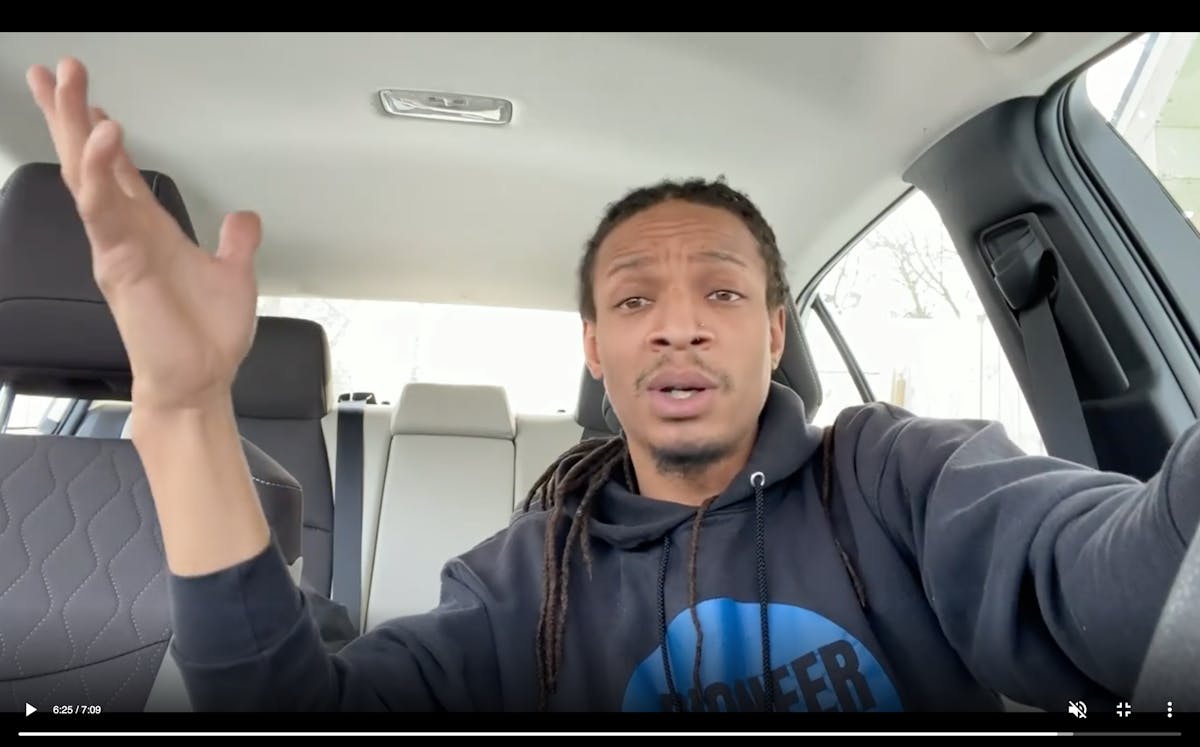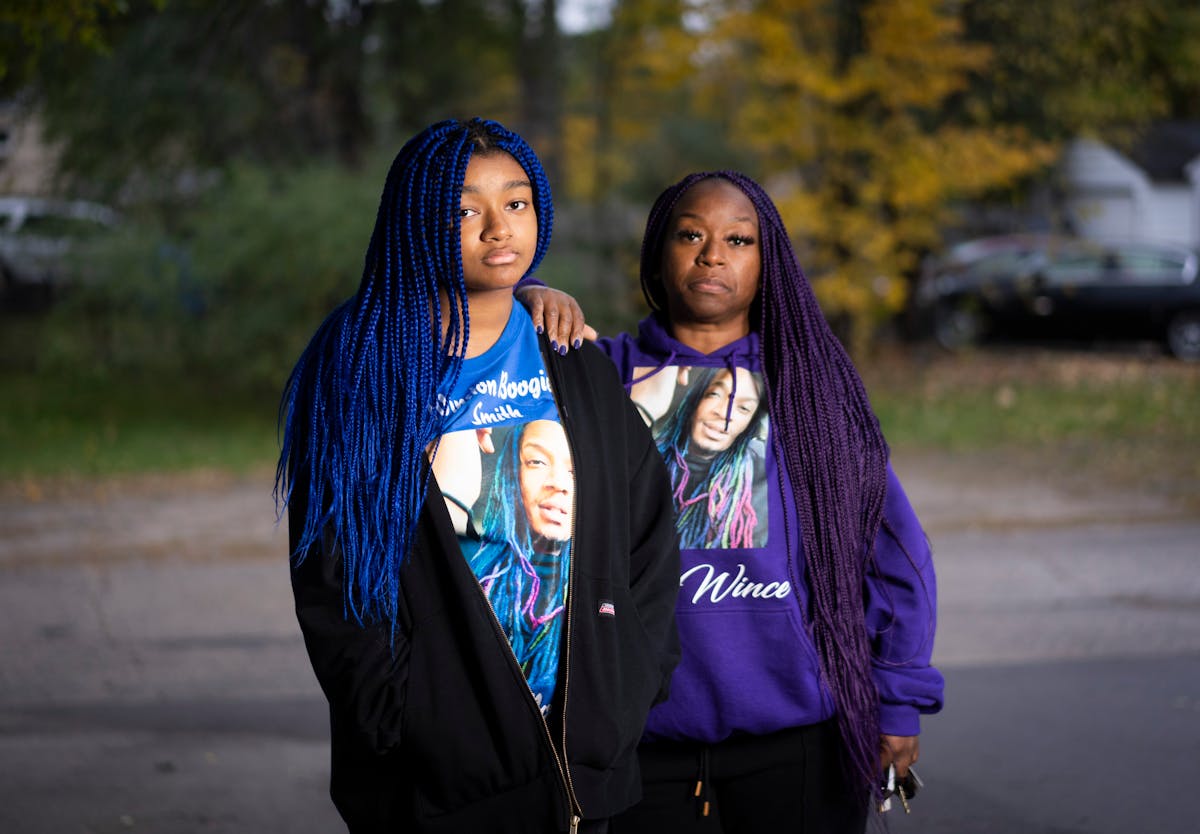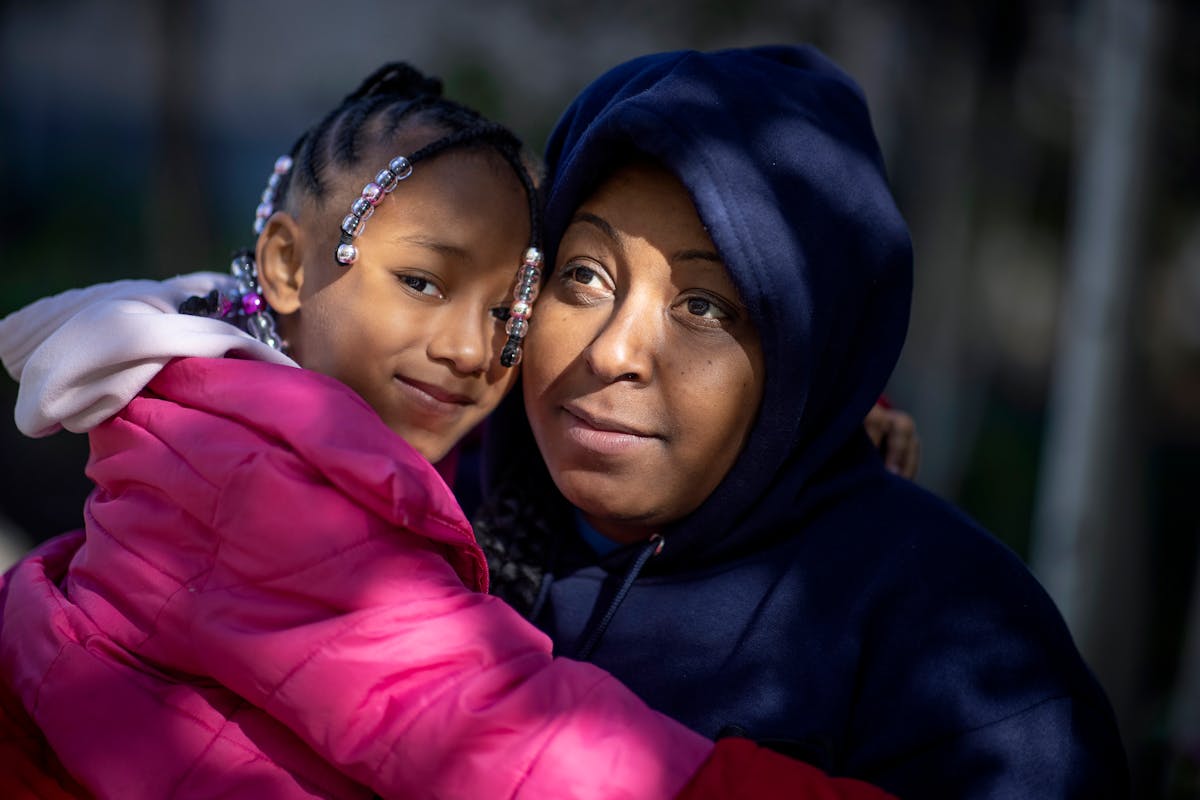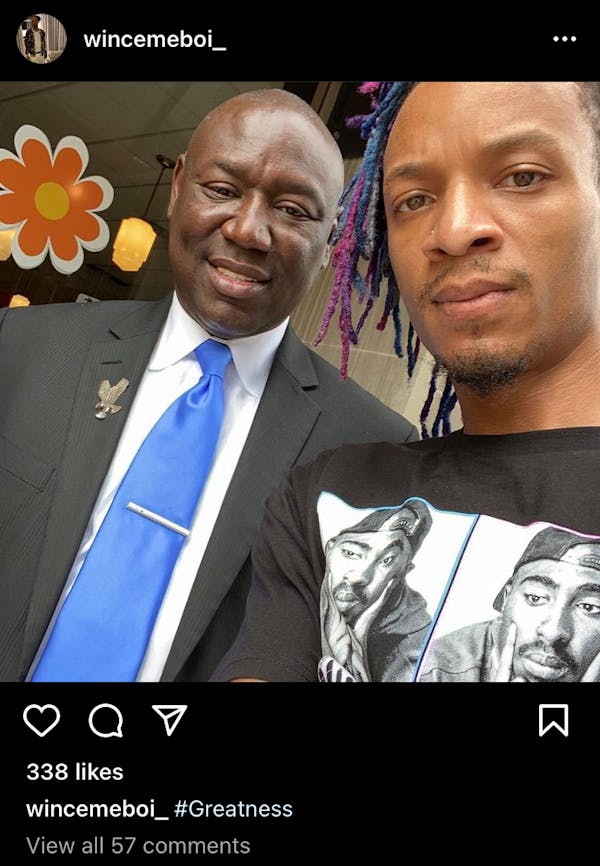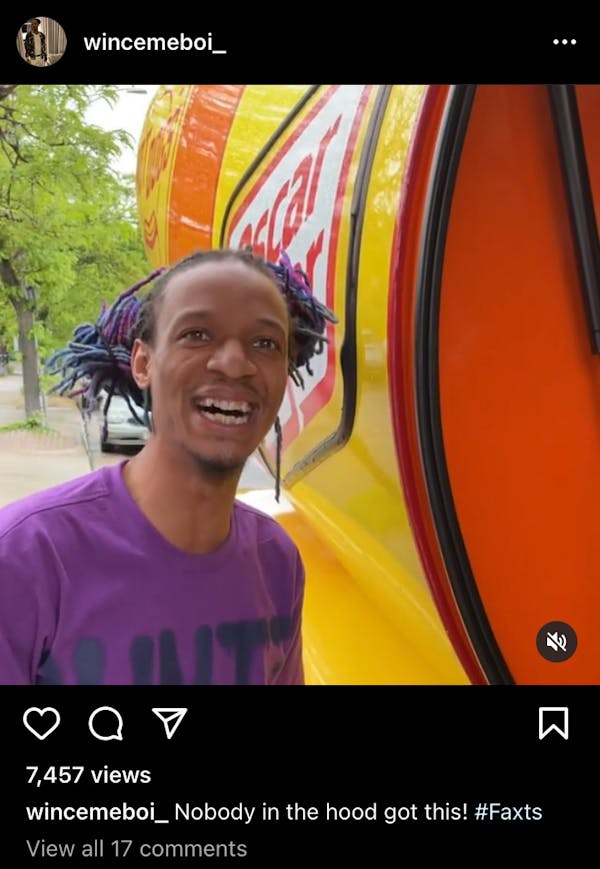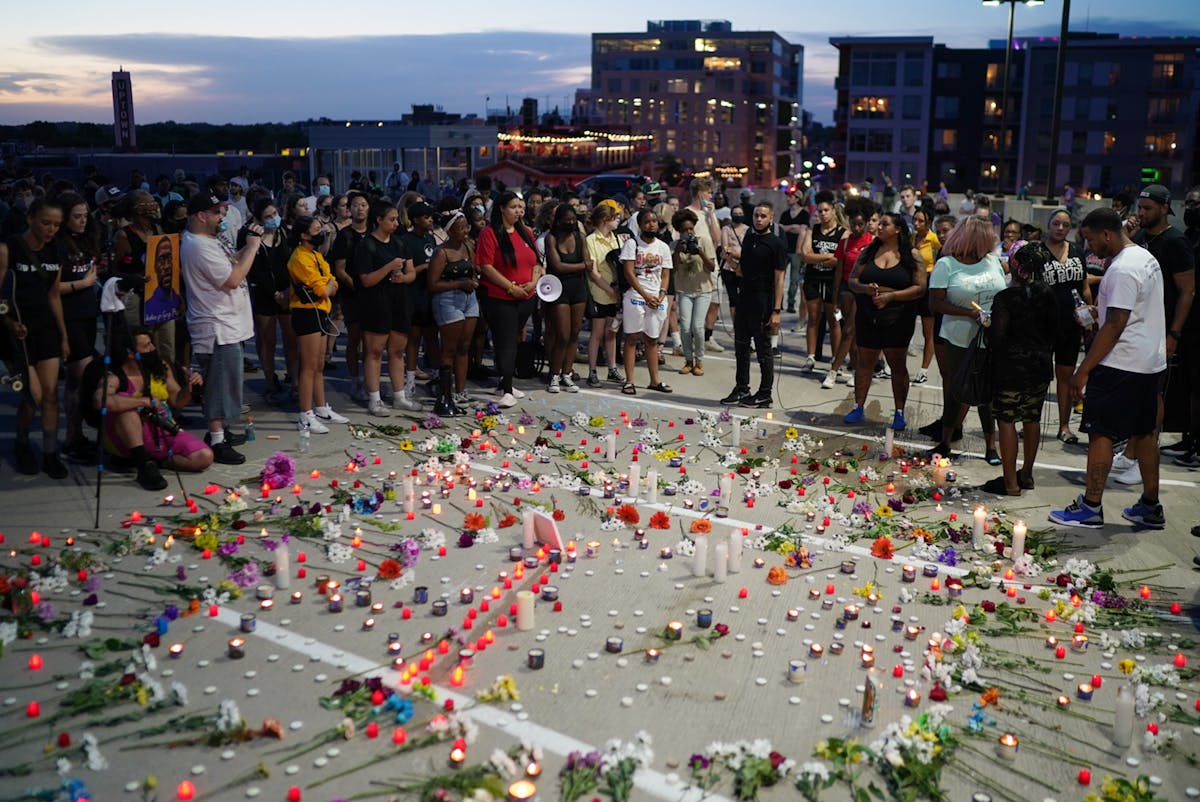A death Winston Smith saw coming
U.S. marshals surrounded the Maserati, yelling for Winston Boogie Smith Jr. to raise his hands and surrender. Inside the car, his passenger pleaded with him to obey.
Smith refused.
"I don't want to go to jail," he said, sweating heavily. "I'm going to die, I'm going to die."
And then, authorities said , Smith showed a gun. Task force members fired more than a dozen bullets into the vehicle.
Smith's death atop a Minneapolis parking ramp last June — coming just a couple of months after the killing of Daunte Wright — marked yet another grim instance of a Black man perishing at the hands of Minnesota law enforcement.
It was also an ending that the 32-year-old budding comic and father of three had long seen coming. He shared his visions of an early death with family members, and as his legal woes mounted, he told friends he was having nightmares about cops gunning him down.
At other times Smith seemed to welcome such a showdown. On social media, he called for people to shoot police in retaliation for the deaths of Philando Castile, George Floyd and Wright. And rather than serve his sentence for a felony gun conviction, Smith sometimes wondered about shooting it out with the cops instead.
A year later, it's possible to see Smith's decision not to surrender as a testament to the visceral fear and distrust caused by a relentless cycle of law enforcement killings.
But his fate also invites difficult questions: What is the line between paranoia and a justified distrust of police? Between refusing to participate in a racially biased legal system and evading responsibility for one's crimes? Between knowing the risks a Black suspect faces at the hands of law enforcement and writing a self-fulfilling prophecy?
For someone who at times seemed fixated on his own demise, Smith was known to many as a fearless force of life. He was a never-ending whir of motion, waking up early and falling asleep late, bouncing from one place to the next, talking big, dreaming avidly. His countenance was relentlessly cheery; he seldom spoke of his problems.
"Winston was happier than anybody I ever knew," said his friend Westin Hughes.
Born in 1989, Smith grew up on the South Side. Some bullied him for his dorky glasses and skinny frame, but Smith was not a fighter. In their tough Minneapolis neighborhood, he was a goofball, not a gangster — "goofy as hell," as Hughes put it.
Relatives recall police arresting Smith on minor charges as a juvenile — once, his sister Tamara Wilson said, he was in jail on a curfew violation from Friday night until Monday morning. Smith told her in his early 20s that if his life ended early, it would be because of the police. "He always used to say … 'The police are always messing with me,'" she said.
Then an officer in Ferguson, Mo., killed Michael Brown in 2014, prompting an outcry that positioned Black Lives Matter as a national force. Smith declared on Facebook that cops had started a war and should be shot; he made a similar post following the police killing of Castile two years later.
A father to two daughters by then, Smith wondered on Facebook if he'd live to see them grow up, "but thats not promised due to my skin color ... im saying my goodbye to all my people tonight just cuz im not sure no more if ima die soon."
By the time of Castile's killing, Smith's criminal record amounted to a string of misdemeanors. But Shelly Hopkins, who dated Smith off and on since 2013, was taken aback at how police treated him, describing the kind of racially biased policing the Minnesota Department of Human Rights recently found in its investigation of the Minneapolis Police Department.
Once, she said, they were sitting in the car smoking cigarettes when Minneapolis officers said it smelled like marijuana and tried to search the vehicle. On another occasion, she said, a Minneapolis cop at a gas station broke Smith's car window and tried to pull him out of the vehicle on the suspicion that he was tied to a nearby drug deal. Smith complained about police harassment to Communities United Against Police Brutality.
Then came his first felony case.
In November 2017, Hopkins told police that Smith knocked her down and hit her as his friend ripped her purse away, saying she owed Smith money. Smith pleaded guilty to aggravated robbery. He received a four-year sentence, but Judge Jay Quam departed from state guidelines and set aside the prison time in favor of three years' probation. In February 2019, for reasons not in the court record, Quam amended Smith's sentence and added 30 more days in the county workhouse at the request of his probation officer. He was ordered to report to the workhouse on May 15, 2019. In the fall of 2019, however, a warrant was issued for Smith's arrest after he failed to show up.
Someone he was visiting at an apartment complex tipped off police that he had a gun, and officers found a pistol under the driver's seat of the car in which he'd arrived. As a felon under court supervision, he was not allowed to carry a firearm.
Booked in jail in late 2019, Smith phoned Hopkins in a panic: he'd dreamt that police shot him six times. The nightmares resumed after he was released on bail, and Smith often woke up in such a sweat, Hopkins said, that she had to change the sheets.
"We talked about it all the time after that," recalled Hopkins. "He knew police were going to kill him." His cousin Ebony Kirkman saw something awry that summer, too, when Smith told her at a barbecue, "I've just got a feeling like I'm going to die."
The following May, Minneapolis officer Derek Chauvin killed Floyd. On Facebook, Smith wrote "… kill them dirty ass cops off we tired of being scared at the red light!" As protests surged outside of the Third Precinct station, Smith and his cousin Marshawn Cheeks saw police fire a rubber-coated bullet at a girl's head. They carried her to safety as she bled. Afterwards, Smith told Cheeks that he thought cops were tapping his phones and following him.
Police had, in fact, been trying to arrest Smith on warrants for the robbery and gun possession. When they spotted him outside the Mall of America a month after Floyd's death, Smith led cops on a high-speed chase. They ended the pursuit when he entered Hwy. 494 going the wrong direction, and they charged Smith with a felony of fleeing police.
Smith later posted on Facebook, "For whatever reason Bloomington police tried to pull me over I don't know but yu not finna kill me ... high speed chase it is." Two days later, Smith wrote that he was very "paranoid"; if he died, he said, the police did it.
That year Smith reconnected with his old friend Stavon Williams, a comedian impressed with his talent. Smith would roll up to his house at 6 a.m., saying, "I'm ready to do some skits, I got an idea!"
Williams already had a sizable online following, and the pair began filming comedy videos that blew up on Facebook and Instagram with hundreds of thousands — sometimes millions — of views. Williams often presented himself as the voice of reason, while Smith played his hilarious, bumbling goof of a friend who couldn't stay out of trouble.
But his comportment was serious when he appeared at the Ramsey County courthouse in January 2021. Judge Richard H. Kyle Jr. asked if he was voluntarily pleading guilty to illegal possession of a firearm.
"I don't have other options," said Smith.
Kyle asked if he was thinking clearly.
"There's a lot on my mind, but I'm rushed. I'm forced. I'm — I'm pressured. I don't know if I'm thinking clearly, but I understand everything, yes."
Smith affirmed to his public defender that he knew the gun was in the car. He had a four-year stayed sentence for the robbery, and faced a four-year sentence for the gun case that would run concurrently. Smith's attorney told him he'd have to serve two-thirds of it.
On Instagram, Smith talked about the stress of having to go to prison and the dark thoughts it inspired. He'd been ready to die for his freedom, he said, "because I feel like they're not treating me fair." But Smith confessed that the death of Dolal Idd, a Black man killed in December 2020 after shooting at Minneapolis police when they tried to arrest him on a weapons charge at a gas station, forced him to reconsider. Smith and Hopkins had driven past the scene swarming with cops in the aftermath of the killing a month earlier.
"I'm thinking, four years, f--- that, let 'em see I'm a gangster," Smith said on video, but he added that was the wrong mind set. "What good does that do?"
Smith flew to Las Vegas to celebrate turning 32. On April 9, the day after his birthday, he messaged Williams, "Bro this case. Driving me crazy nooooo lol."
"I'm like damn they finna try to kill my ass," Smith wrote.
Smith added that he worried about being there to raise his children, then 2, 7 and 12.
Williams later assured Smith he could write comedy scripts in prison; he could use lockup for plot lines. "We can keep this going — your name is already huge."
Days later, a Brooklyn Center police officer shot and killed Wright.
Protesters had followed in the footsteps of Martin Luther King Jr. for years advocating peace, Smith said on Instagram, "but now y'all still begging for y'all freedom ... they still shoot you all down, they must want a war." He said to come to demonstrations with guns, bombs and rocket launchers.
"A good way to get u killed … U just gonna be another name on a shirt," someone commented.
But Smith had a talent for melding humor with social commentary, and ridiculed performative activism in his comedy videos that month, too. With the verdict in the Chauvin murder trial looming, Smith wore a shirt featuring a middle finger above the words "the police" and had Williams film him awkwardly cover it up as he walked past National Guard soldiers lining the streets. He proudly showed off his logo only after he passed them.
And the day Chauvin was convicted of murdering Floyd, Smith made a video of himself inviting Williams to go looting — a parody of people using the racial justice movement as an excuse to run amok.
"He's guilty on all charges — do you understand?" Williams asked.
"Oh, the case — oh, I forgot about the case," Smith deadpanned.
Smith did not appear for his sentencing on May 19, 2021, and Ramsey County issued a warrant for his arrest. A judge had denied his petition to withdraw the guilty plea, and Hopkins said Smith was looking for a new attorney to fight the case. Several friends urged him to turn himself in, including Capritieshay Rogers, the mother of his then 7-year-old daughter.
A few days later, their daughter came home saying Smith smacked her after she hit her baby brother. Rogers went to Hopkins' house to confront Smith, whom she had always known as a loving father. When he wouldn't come out, she called the Minneapolis police, gave them Smith's location, claimed he was armed and told them about the outstanding warrant. A police record of the May 24 call says: "[suspect] has a gun, has told [caller] that if ever gets pulled over he'll shoot it out, is on the run."
Rogers told the Star Tribune that she exaggerated the danger Smith posed to get police to show up faster. The cops didn't come. She kept calling, at one point shouting the address to the dispatcher. After an hour, Rogers gave up and left.
Friends said Smith was hardly living as a fugitive. Fans at the Mall of America recognized him from his videos. Smith was downtown one morning when he spotted Ben Crump, the attorney for Floyd's family, and rushed over to meet him. Smith posted a photo of them together on Instagram with the hashtag "Greatness."
The following day was May 25, the one-year anniversary of Floyd's death, and Smith voiced excitement about his future. "Next month we Finna take over the city Bro … Everybody know us now," he texted Williams. They kept making skits: in one that now has 3.4 million views on Facebook, Smith pretended he used Paycheck Protection Loan funds to buy a Wienermobile.
"I'm reading the comments ... they love me," he texted Williams the night of June 2.
At 5:05 the following morning, Smith texted him to suggest they sell hot dogs for real, adding, "U see me tomorrow teaching a class about getting it out the mud," or making something from nothing.
Smith was in such high spirits that his roommate Hughes heard him singing "I Feel Good" as he walked out of the shower.
The afternoon of June 3, Smith posted on Instagram that he was at Stella's, an Uptown restaurant. A Ramsey County sheriff's deputy surveilling his account alerted fellow members of the U.S. Marshals Service-led North Star Fugitive Task Force.
He described Smith as armed and dangerous, though the investigative file released by the Bureau of Criminal Apprehension does not mention Smith's advocacy of violence against police. At least nine task force members took position to monitor "the fugitive," as they called him. Just after 2 p.m., they watched as Smith and a woman he was dating finished lunch, crossed Lake Street and rode the elevator to the top of a parking ramp.
The couple was sitting in a Maserati — borrowed for a comedy skit — when seven unmarked task force cars boxed them in. Authorities yelled at Smith to put his hands up. He ignored them. Smith tried to go on Facebook Live. After a few minutes, an officer said, Smith showed a firearm. "Gun!" the officer screamed. He fired at Smith, and another officer followed suit.
Smith slumped over, dying, his premonitions come to life.
Investigators said they found a .380 and matching cartridge casings in the vehicle, along with damage in the car indicating he fired a weapon. After so much of his life played out on film, Smith's death went unrecorded: the task force members were not wearing body cameras, following a since-reversed policy of the marshals.
Had Smith been right to fear law enforcement all along?
Or did they have reason to fear him?
Crow Wing County Attorney Donald Ryan concluded the latter. He announced in October that he would not be charging the task force members—a Hennepin County sheriff's deputy and a Ramsey County deputy — who shot Smith and whose identities have not been publicly disclosed by law enforcement. Ryan wrote that while he was unable to determine who fired first, "Once an individual initiates a deadly force confrontation, a law enforcement officer does not have to wait to be shot/shot at before reacting."
Smith's family hired Crump. The legal team is still pressing for answers, though it has not filed suit. It's unclear why the federal task force tried to make an arrest in a seemingly lower-level state case.
Rogers, who thinks that task force members should have been charged, believes Smith would have been in jail but alive if the MPD had come for him when she called. And even if the arrest had turned deadly, she noted, city police would have been required to wear cameras, and the official account would not be in so much dispute.
If it had happened to anyone else, Smith might have declared war yet again. Now others took up the mantle on his behalf, holding him up as a revolutionary targeted for his radical views. As Uptown demonstrators shouted at a line of cops in riot gear, a bereft Kidale Smith told the protesters that his brother wouldn't want this. They retorted that yes, he would.
As for Smith's online threats, Kidale maintains there's a difference between what people say and what they do. He recalled seeing his brother's blood in the parking ramp and kneeling to touch it, bawling. "I'm thinking these dark thoughts, right? I'm thinking I want to do this, I'm going to do that, but … thoughts are very different than actions."
Kidale tries to conjure up what his brother was thinking as the task force members surrounded him. He figures Smith believed the marshals would find a way to justify killing him even if he followed their commands. There are too many cases, Kidale said, of Black men dying even after doing what police say.
So if Smith did grab a gun, Kidale said, it would have been to defend himself.
He imagines his brother told himself then, "At this point, I'm already dead."
